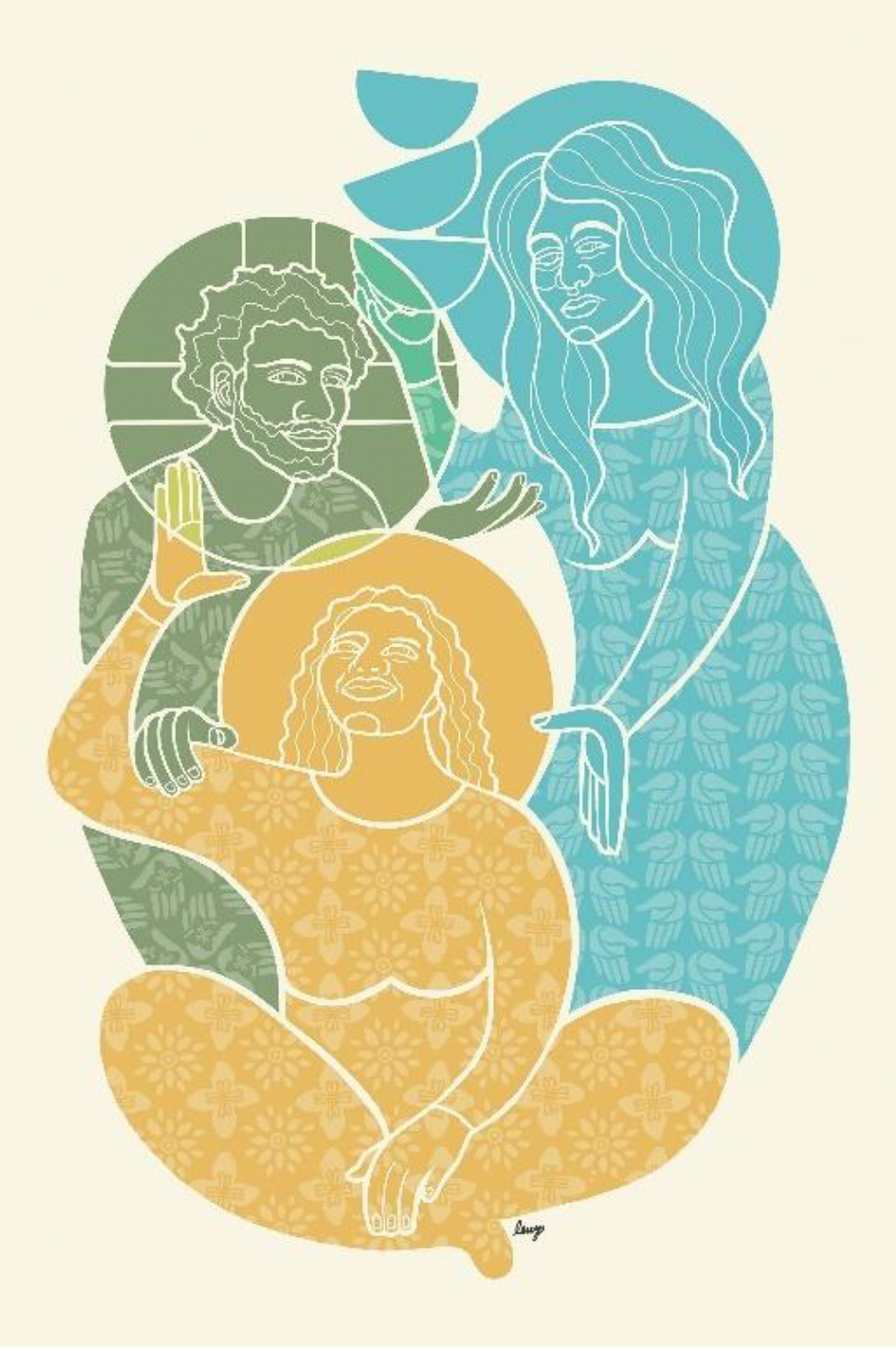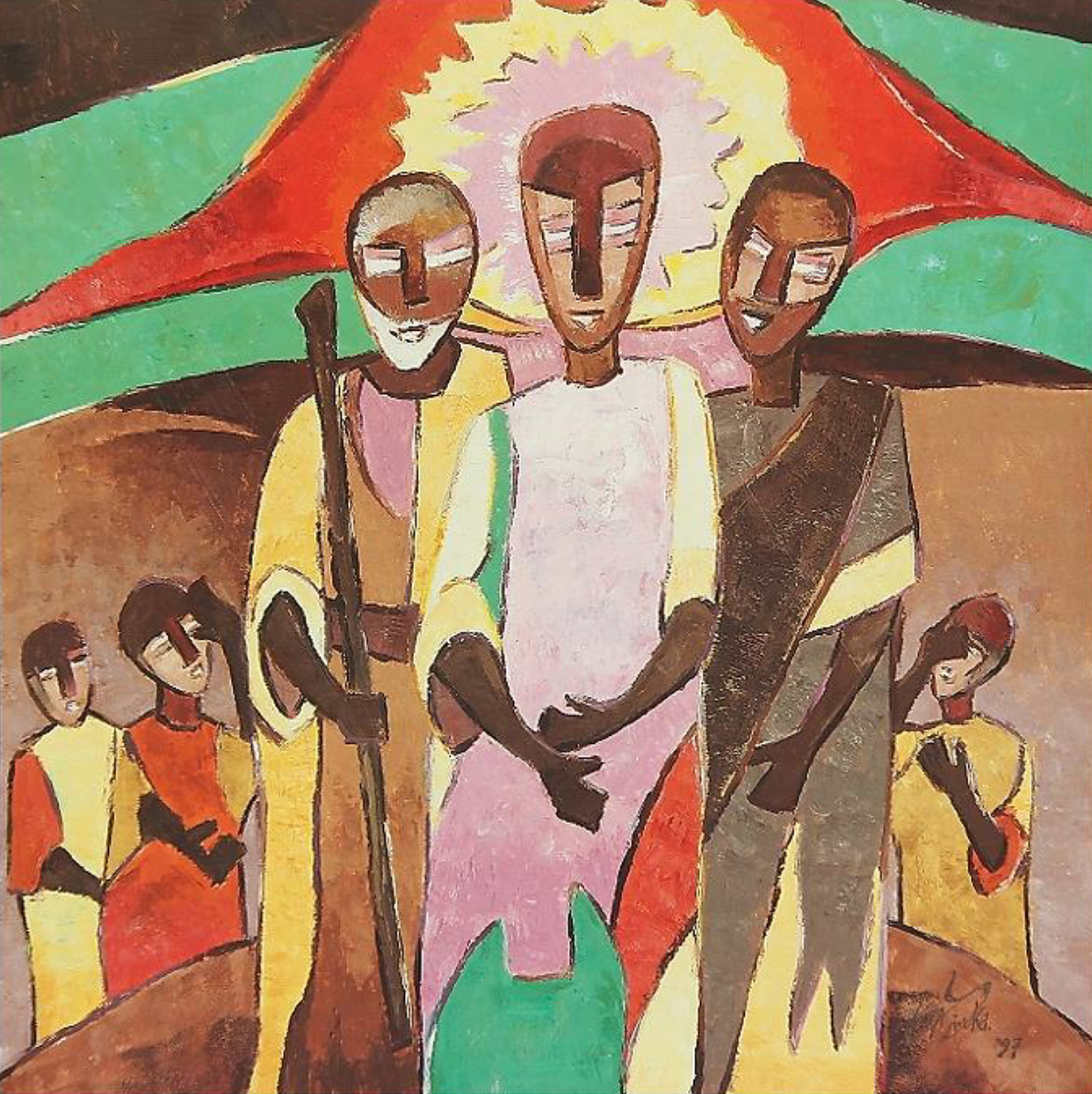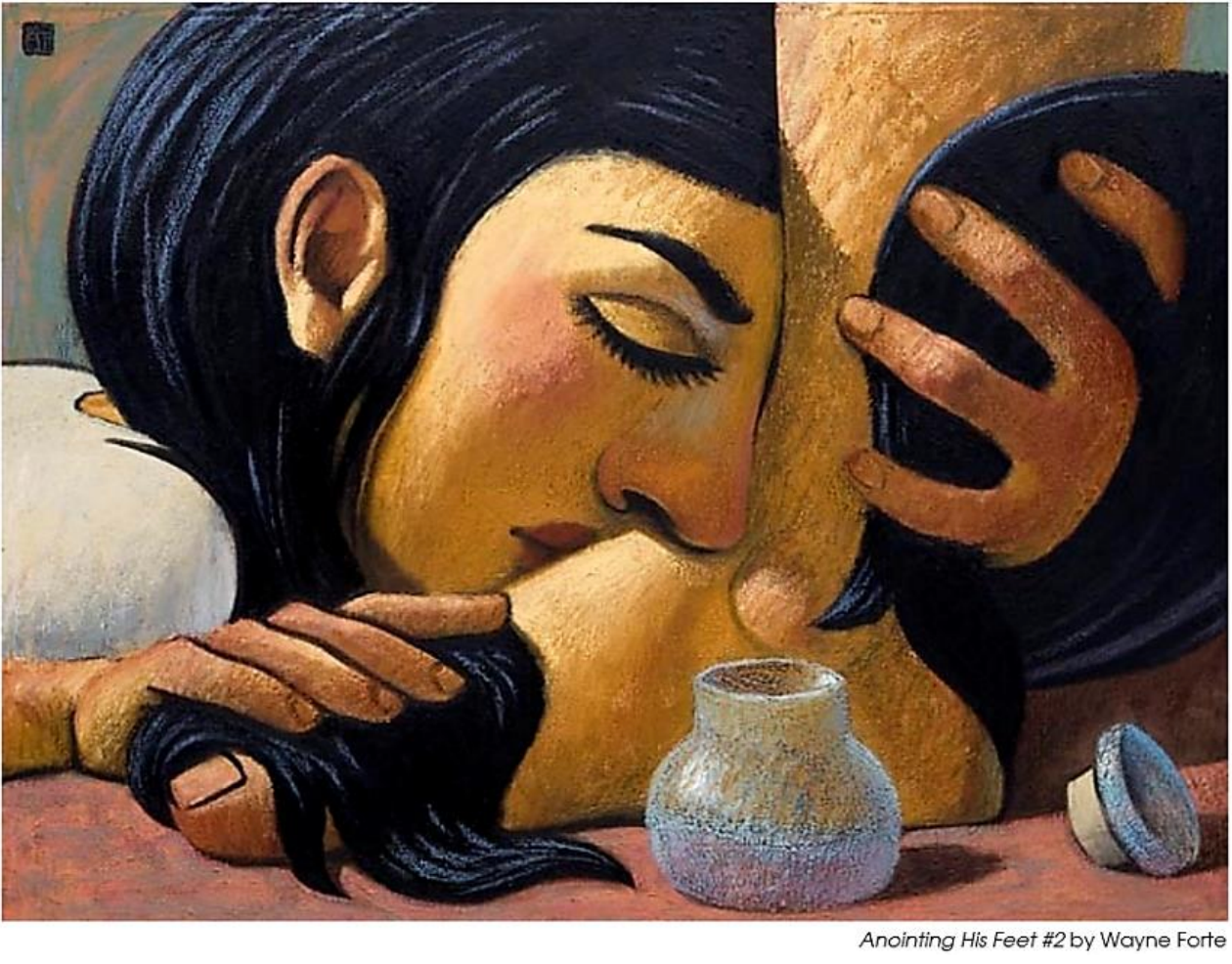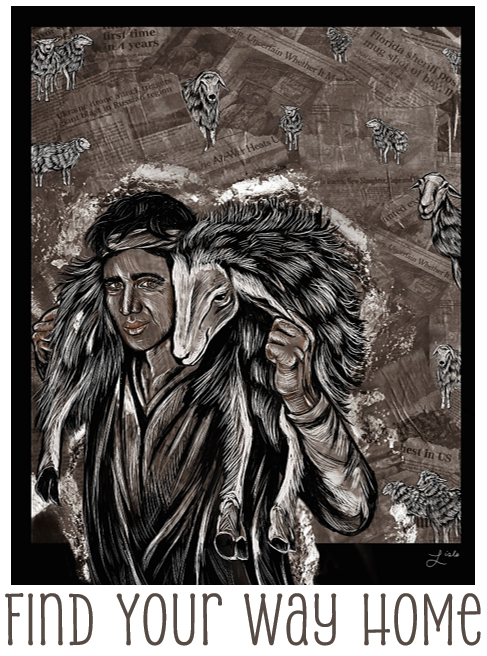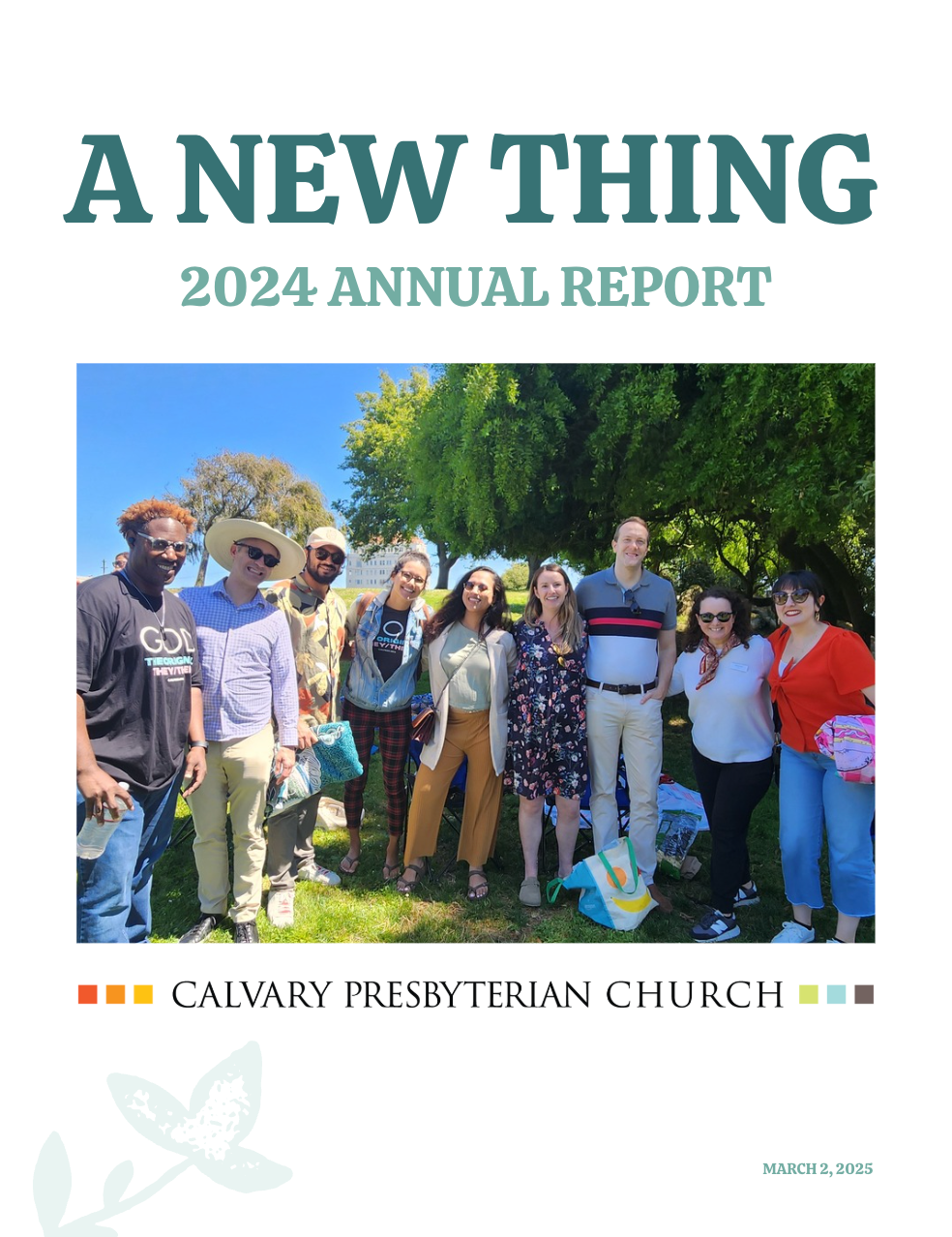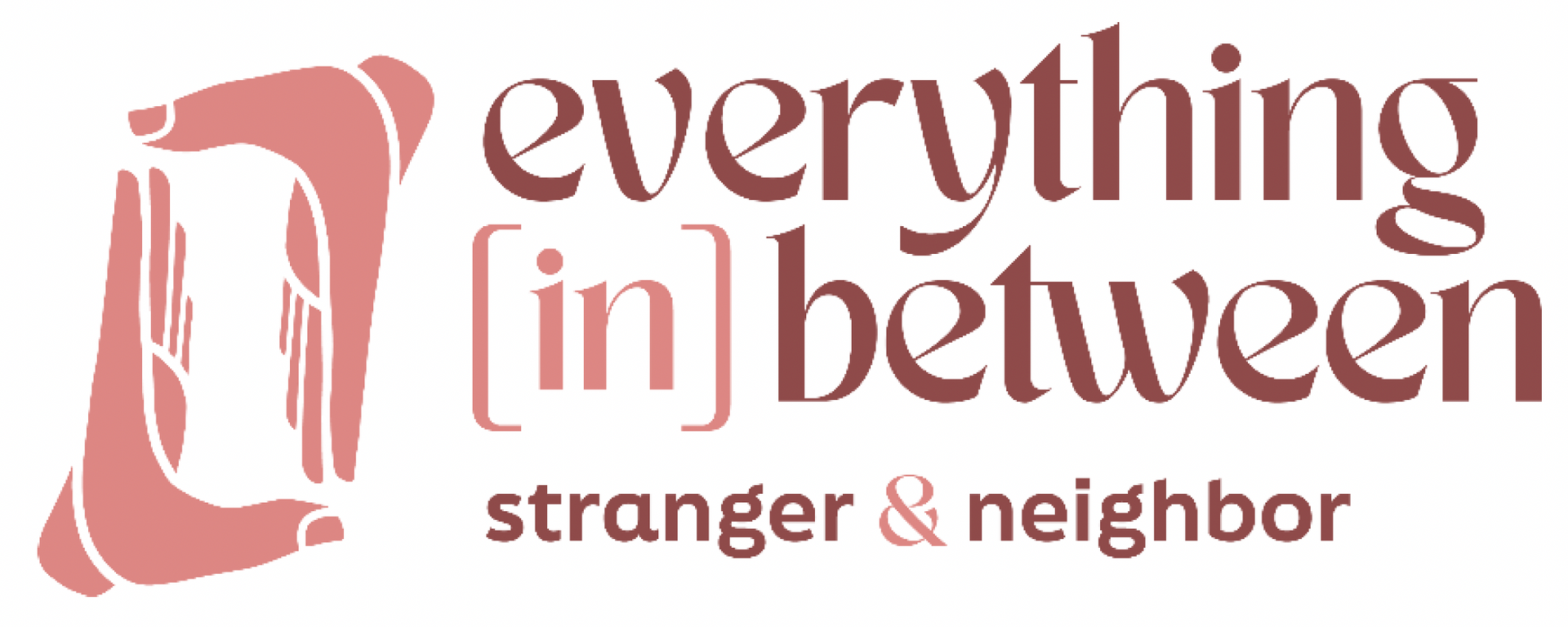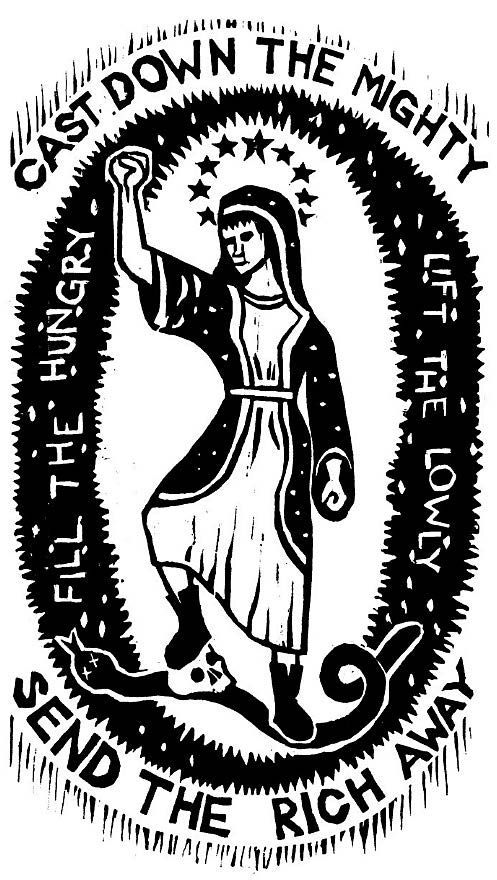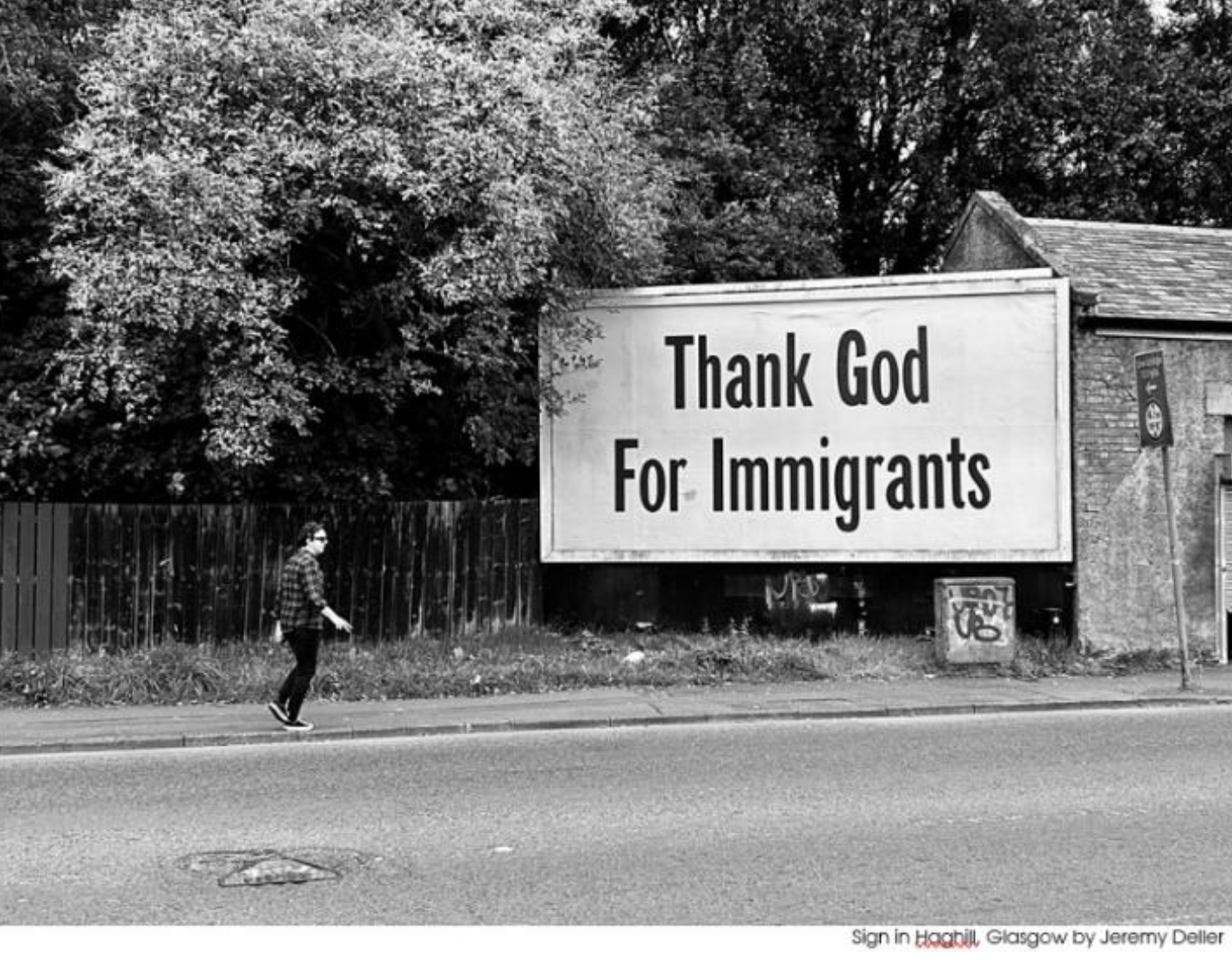Sermon 04.06.2025: Lent 5: Calling Each Other In
It is easy these days to say who we are against. Maybe it has always been easy to do so.
What is harder is to create space for people to change their minds, change their views, change their behavior.
As Jesus approaches Jerusalem, he stops in Jericho and accepts an invitation to eat at the home of someone who society wanted to cancel.
How can the story of Zacchaeus help us give space for each other?
Scripture
Luke 18:31-19:10
Then he took the twelve aside and said to them, “See, we are going up to Jerusalem, and everything that is written about the Son of Man by the prophets will be accomplished. For he will be handed over to the Gentiles; and he will be mocked and insulted and spat upon. After they have flogged him, they will kill him, and on the third day he will rise again.” But they understood nothing about all these things; in fact, what he said was hidden from them, and they did not grasp what was said.
As he approached Jericho, a blind man was sitting by the roadside begging. When he heard a crowd going by, he asked what was happening. They told him, “Jesus of Nazareth is passing by.” Then he shouted, “Jesus, Son of David, have mercy on me!” Those who were in front sternly ordered him to be quiet; but he shouted even more loudly, “Son of David, have mercy on me!” Jesus stood still and ordered the man to be brought to him; and when he came near, he asked him, “What do you want me to do for you?” He said, “Lord, let me see again.” Jesus said to him, “Receive your sight; your faith has saved you.” Immediately he regained his sight and followed him, glorifying God; and all the people, when they saw it, praised God.
He entered Jericho and was passing through it. A man was there named Zacchaeus; he was a chief tax collector and was rich. He was trying to see who Jesus was, but on account of the crowd he could not, because he was short in stature. So he ran ahead and climbed a sycamore tree to see him, because he was going to pass that way. When Jesus came to the place, he looked up and said to him, “Zacchaeus, hurry and come down; for I must stay at your house today.” So he hurried down and was happy to welcome him. All who saw it began to grumble and said, “He has gone to be the guest of one who is a sinner.” Zacchaeus stood there and said to the Lord, “Look, half of my possessions, Lord, I will give to the poor; and if I have defrauded anyone of anything, I will pay back four times as much.” Then Jesus said to him, “Today salvation has come to this house, because he too is a son of Abraham. For the Son of Man came to seek out and to save the lost.”
Sermon
When I was reading scripture last week for Victor's sermon about the lost sheep, I noticed the passage from Luke 15 began with this sentence:
Now all the tax-collectors and sinners were coming near to listen to him. And the Pharisees and the scribes were grumbling and saying, ‘This fellow welcomes sinners and eats with them.
You know who else was grumbling about this as he typed out his Gospel? Luke was.
Because Zacchaeus was one of those tax collectors coming near Jesus to listen to him. Zacchaeus was someone who made money by taking money from his fellow Palestinians to pay Rome their tributes.
And while Rome expected a certain amount of money per person, they didn’t dictate how much a tax collector could collect. We’re told that Zacchaeus was a chief tax collector and was very rich. Which means that he collected more from his people than he was turning over to Rome. Zacchaeus was getting rich at the expense of his neighbors.
So I can imagine that when he would have asked if he could go to the front of the crowd to see Jesus, he might have not received a welcome reception. It is understandable.
And it reminds us of both the mystery of God’s ways and the vastness of God’s mercy.
God’s ways are not our ways. God’s mercy extends beyond the limits of our mercy.
And Jesus invites himself over to stay at Zacchaeus’ house.
It must have killed Luke to include this story in his gospel. He’s spent the whole book talking about how God is coming to bring JUSTICE and to restore EQUITY and to LIFT UP the poor and to BRING DOWN the rich.
We want Jesus to be the houseguest of people whose homes are being foreclosed, not with the people who invented subprime loans!
We want Jesus to visit with the unemployed, not with the corporate execs who sent jobs overseas!
“He has gone to be a guest of one who is a sinner,” the crowd grumbles.
And we grumble too.
Luke must have been horrified by Jesus ’behavior! And yet the story still made it in the Bible, which shows that even Gospel writers have their preconceptions thrown out the window when Jesus is around.
This great reversal unleashed in the person of Jesus of Nazareth is not limited to the song Mary sang when she was pregnant with Jesus. Remember that?
He has brought down the powerful from their thrones,
and lifted up the lowly;
he has filled the hungry with good things,
and sent the rich away empty. (1:52)
This reversal, apparently, also has room for Jesus to publicly announce that he’s eating dinner with Zacchaeus.
Whenever I think that I’ve got a handle on what Jesus will do, with whom he will associate, it turns out I’m all wrong. Rather than the rich person being sent away empty, he’s having dinner with Jesus.
From the message of Luke’s gospel, Zacchaeus should be called out.
But Jesus, instead, calls Zacchaeus in. To call someone in, is not to ignore the harms they have called. It doesn’t give them a pass for bad behavior. It is the way we recognize the humanity in every single person. Both the tax collector and the person they have defrauded are beloved by God.
The phrase ‘calling in’ was coined in 2013 by Ngoc Loan Tran, a then 18 year old trans writer and activist who said, “I picture calling as a practice of pulling folks back in who have strayed from us…a practice of loving each other enough to allow each other to make mistakes, a practice of loving ourselves enough to know that what we’re trying to do here is a radical unlearning of everything we have been configured to believe is normal.” [2]
Jesus won’t give up on us even when we have good reason to give up on each other. Jesus calls Zacchaeus in. And Zacchaeus recognizes this for the Good News it is. “So he hurried down and was happy to welcome Jesus.”
And Jesus announces, “Today salvation has come to this house, because he too is a Son of Abraham. For the Son of Man came to seek out and save the lost.”
The lost sheep. The lost coin. The lost prodigal son. We heard those parables last week.
From lost sheep to flunkies who collect taxes for the occupying Roman forces, the sons and daughters of Abraham are a diverse lot, and they all are worth seeking and finding. Jesus is claiming all sort of people for the family of God, these lost and found children of Abraham.
Who are we claiming as family?
It’s tough, this family business.
Because we want to be welcoming and inclusive. But there are just some people who are mean as snakes and causing all sorts of damage in the world and we are certain Jesus will agree with us about this because these people are violating everything the Bible ever told us about how to treat each other.
And so we want their path to be blocked, the way they have made things difficult for us, we want to keep them away from Jesus.
Who is Zacchaeus for you right now?
Who are the people you don’t want to go out of your way to help, because they are collecting extra taxes and are hurting your friends and your community?
I hope you know by now that I never preach to you something I don’t need to hear for myself. And I think this is the issue of our time.
We have to keep standing up for justice, and for the people who are being harmed in all of the political maneuvering going on these days. But we can’t let ourselves become the problem we are trying to transform. We can’t meet hate with hate. We can only meet it with love.
And we have to believe it is possible for people to change. Because if we think it is impossible, well, what are we even doing here.
Believing change is impossible denies the change that has happened even in our own selves.
Who here believes every single thing they believed when they were 5? Only 5-year-olds better be raising their hands right now.
I grew up in a loving family, but a family that sometimes told racist jokes and in a culture that normalized racism. Have I removed every bit of racism from myself? No, I know there is still work to be done in me. But I stopped laughing at racist jokes when I was a teen. And I started telling my dad to stop telling those jokes a little after that and helped him understand why they were problematic. And he stopped telling those jokes too.
We can all change. We have all changed. We cannot stop believing change is possible. And if we want the Zacchaeus’s of the world to change, we have to make room for them to join in our work of justice when they do change.
Following Christ’s call is radical and sometimes upsetting, but it brings transformation for everyone involved.
“Today salvation has come to this house,
because he too is a son of Abraham.
For the Son of Man came to seek out and to save the lost.”
Zacchaeus recognized that for the Good News it was and then he responded.
“Look, half of my possessions, Lord, I will give to the poor; and if I have defrauded anyone of anything, I will pay back four times as much.”
I wonder how people felt about Zacchaeus after this announcement. Did they welcome him at coffee hour? Did they accept his ‘dirty’ money? I suspect they did, because, money. But did they accept him as they took his money?
If we want people to be transformed, to stop being mean snakes who hurt people, we have to be there for them when they are being transformed. We have to make space for them at the dinner table.
When people are hard to hate up close, we have to get closer. Zacchaeus, I’m coming to your house to stay with you.
I’m not going to invite the people I pictured as Zacchaeus over to my house for dinner tonight. I say that to you as a confession, not as something I am proud of.
But I will do my best to remember, in my heart, in my mind, and in my actions, that they are still God’s beloved children and still capable of the same redemption that I have experienced through Jesus Christ.
I will do my best to remember, in my heart, in my mind, and in my actions, that they are children of Abraham, as I am, as you are. Because I want the justice we pursue to restore me as much as it restores the person who has harmed me.
May God’s love, justice, and mercy meet each of us, and all of us, exactly where we are, so we may all claim our space in the family of God.
Amen.
2 Loretta Ross, p. 30, Calling In: How to Start Making Change with Those You’d Rather Cancel

